Abstract
Sleep is generally considered to be restorative and the notion of exercise being associated with the changes in subsequent sleep is popular but has only recently been demonstrated. There are several facets of exercise performed that have an influence on sleep. These include the intensity and duration of the exercise, and the interval between the cessation of exercise and sleep onset. Other factors that may alter sleep after exercise are the age and fitness of the subject, and his lean body mass. Most studies on the effect of exercise on sleep can be interpreted as being partially or totally supportive of the restorative theory of sleep function.
Full text
PDF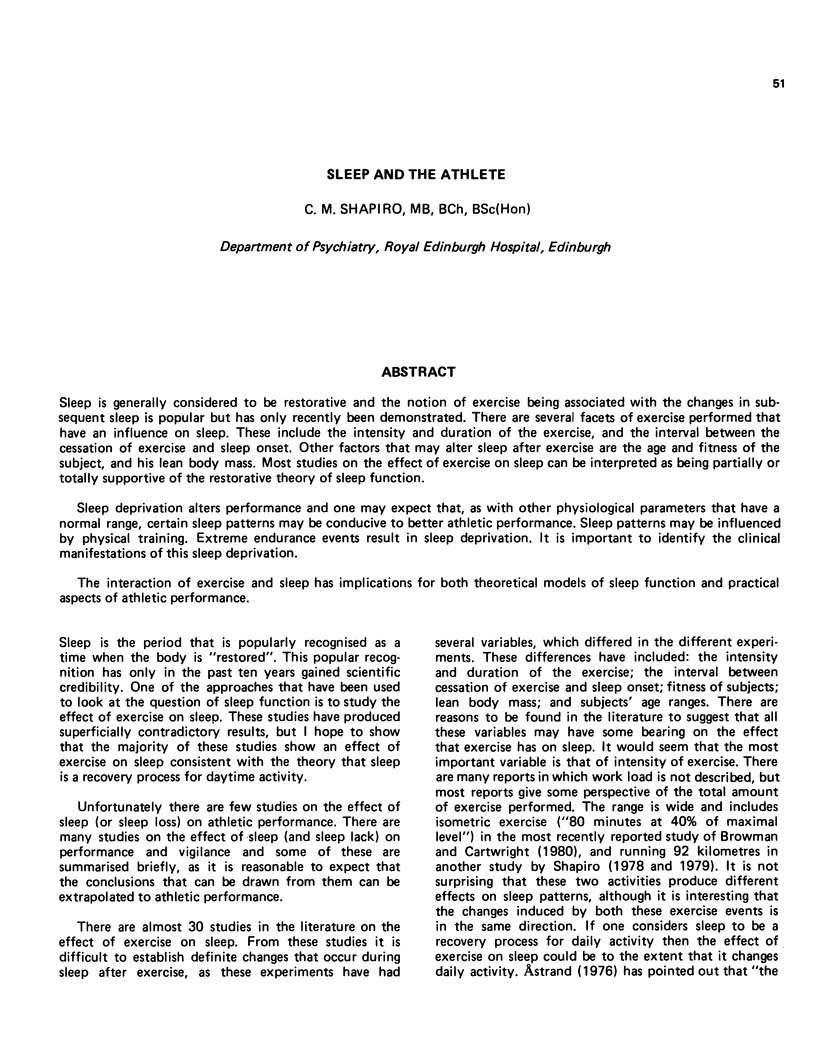
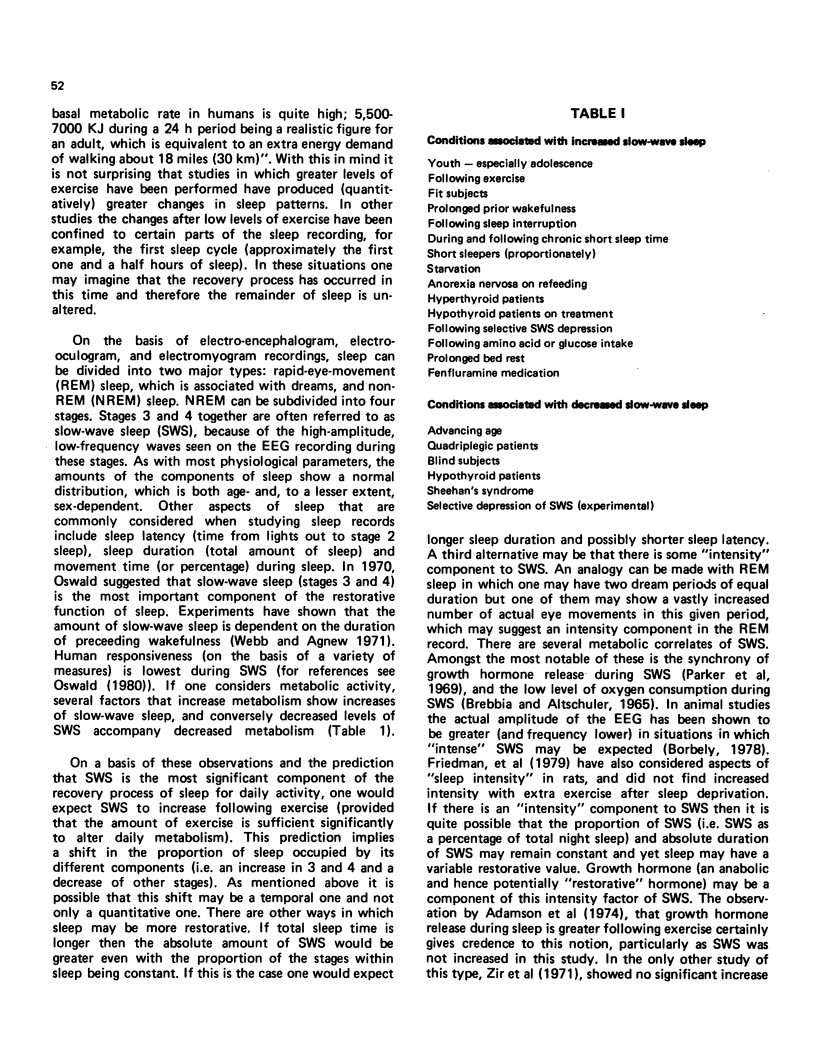
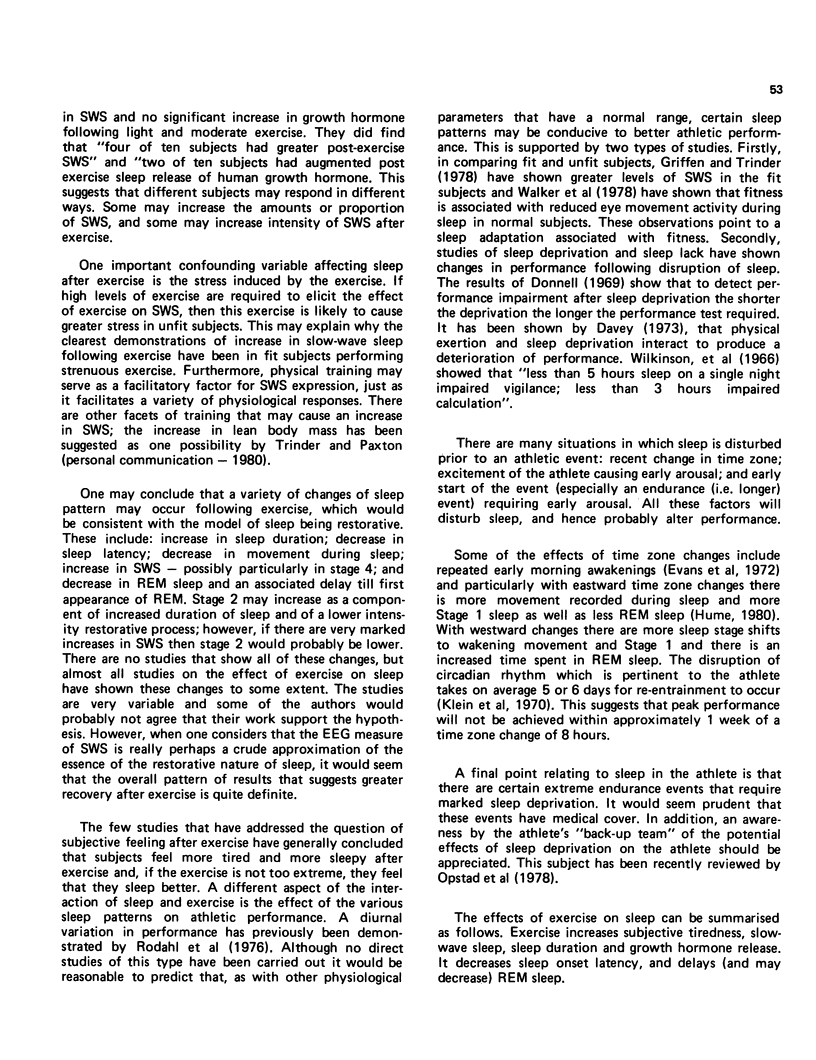
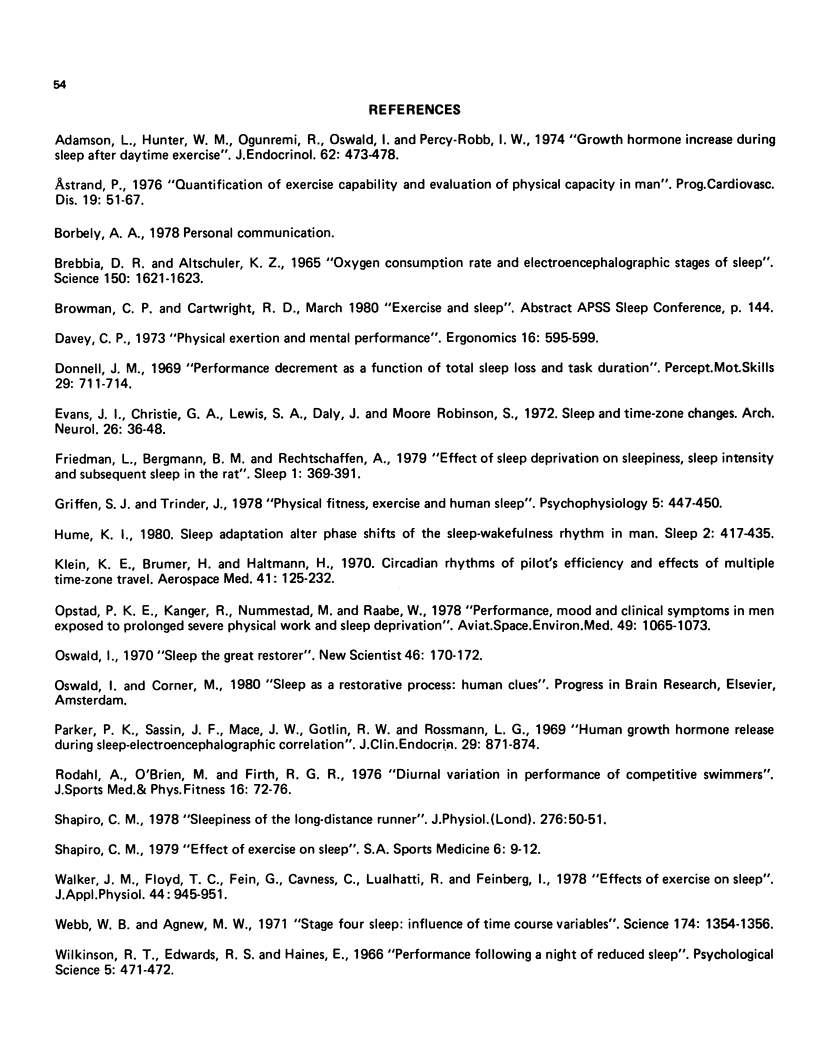
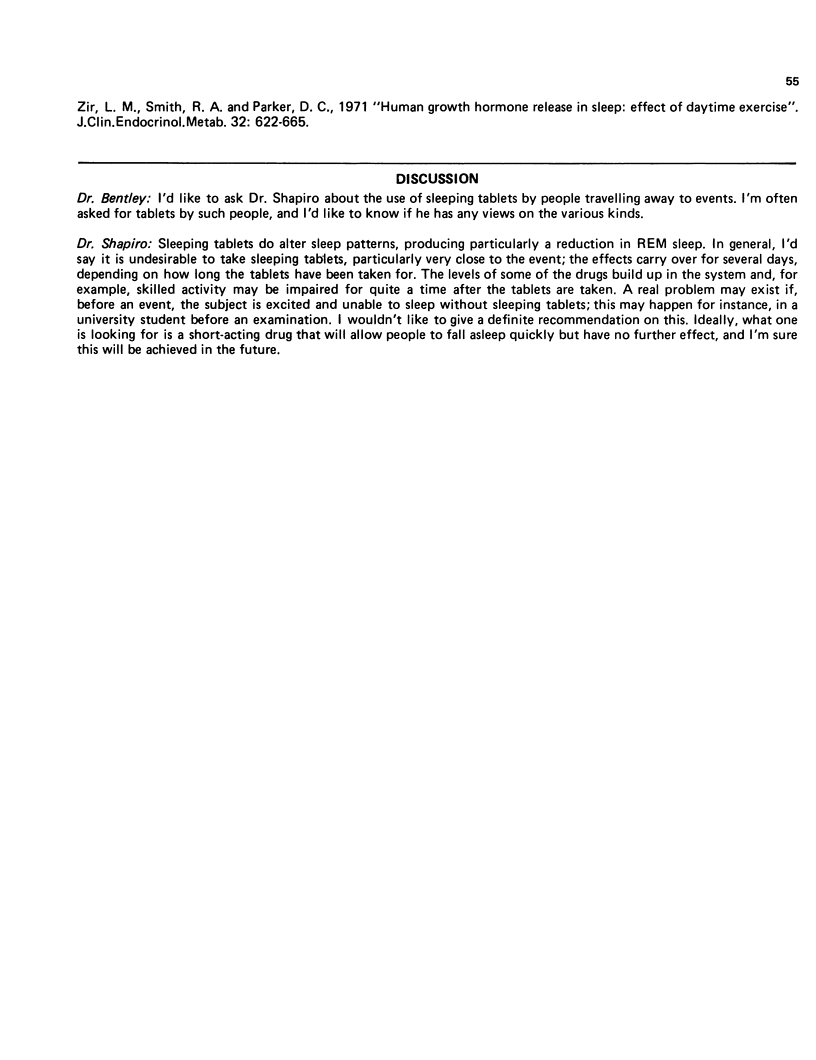
Selected References
These references are in PubMed. This may not be the complete list of references from this article.
- Adamson L., Hunter W. M., Ogunremi O. O., Oswald I., Percy-Robb I. W. Growth hormone increase during sleep after daytime exercise. J Endocrinol. 1974 Sep;62(3):473–478. doi: 10.1677/joe.0.0620473. [DOI] [PubMed] [Google Scholar]
- Astrand P. O. Quantification of exercise capability and evaluation of physical capacity in man. Prog Cardiovasc Dis. 1976 Jul-Aug;19(1):51–67. doi: 10.1016/0033-0620(76)90008-6. [DOI] [PubMed] [Google Scholar]
- Brebbia D. R., Altshuler K. Z. Oxygen consumption rate and electroencephalographic stage of sleep. Science. 1965 Dec 17;150(3703):1621–1623. doi: 10.1126/science.150.3703.1621. [DOI] [PubMed] [Google Scholar]
- Donnell J. M. Performance decrement as a function of total sleep loss and task duration. Percept Mot Skills. 1969 Dec;29(3):711–714. doi: 10.2466/pms.1969.29.3.711. [DOI] [PubMed] [Google Scholar]
- Evans J. I., Christie G. A., Lewis S. A., Daly J., Moore-Robinson M. Sleep and time zone changes. A study in acute sleep reversal. Arch Neurol. 1972 Jan;26(1):36–48. doi: 10.1001/archneur.1972.00490070054008. [DOI] [PubMed] [Google Scholar]
- Friedman L., Bergmann B. M., Rechtschaffen A. Effects of sleep deprivation on sleepiness, sleep intensity, and subsequent sleep in the rat. Sleep. 1979 Summer;1(4):369–391. doi: 10.1093/sleep/1.4.369. [DOI] [PubMed] [Google Scholar]
- Griffin S. J., Trinder J. Physical fitness, exercise, and human sleep. Psychophysiology. 1978 Sep;15(5):447–450. doi: 10.1111/j.1469-8986.1978.tb01413.x. [DOI] [PubMed] [Google Scholar]
- Klein K. E., Brüner H., Holtmann H., Rehme H., Stolze J., Steinhoff W. D., Wegmann H. M. Circadian rhythm of pilots' efficiency and effects of multiple time zone travel. Aerosp Med. 1970 Feb;41(2):125–132. [PubMed] [Google Scholar]
- Opstad P. K., Ekanger R., Nummestad M., Raabe N. Performance, mood, and clinical symptoms in men exposed to prolonged, severe physical work and sleep deprivation. Aviat Space Environ Med. 1978 Sep;49(9):1065–1073. [PubMed] [Google Scholar]
- Parker D. C., Sassin J. F., Mace J. W., Gotlin R. W., Rossman L. G. Human growth hormone release during sleep: electroencephalographic correlation. J Clin Endocrinol Metab. 1969 Jun;29(6):871–874. doi: 10.1210/jcem-29-6-871. [DOI] [PubMed] [Google Scholar]
- Rodahl A., O'Brien M., Firth R. G. Diurnal variation in performance of competitive swimmers. J Sports Med Phys Fitness. 1976 Mar;16(1):72–76. [PubMed] [Google Scholar]
- Walker J. M., Floyd T. C., Fein G., Cavness C., Lualhati R., Feinburg I. Effects of exercise on sleep. J Appl Physiol Respir Environ Exerc Physiol. 1978 Jun;44(6):945–951. doi: 10.1152/jappl.1978.44.6.945. [DOI] [PubMed] [Google Scholar]
- Webb W. B., Agnew H. W., Jr Stage 4 sleep: influence of time course variables. Science. 1971 Dec 24;174(4016):1354–1356. doi: 10.1126/science.174.4016.1354. [DOI] [PubMed] [Google Scholar]
- Zir L. M., Smith R. A., Parker D. C. Human growth hormone release in sleep: effect of daytime exercise. J Clin Endocrinol Metab. 1971 May;32(5):662–665. doi: 10.1210/jcem-32-5-662. [DOI] [PubMed] [Google Scholar]


